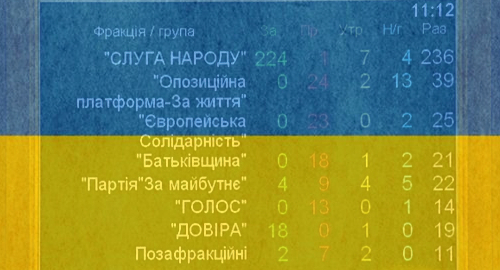 Ukraine’s gambling expansion plans are go after the country’s parliament approved the second reading of the necessary legislation.
Ukraine’s gambling expansion plans are go after the country’s parliament approved the second reading of the necessary legislation.
On Tuesday, 248 members of Ukraine’s Verkhovna Rada voted in favor of Bill 2285-d, which authorizes the expansion of both land-based and online gambling operations. The vote after the bill’s second reading exceeded the required 226 votes needed for passage, leaving only President Volodymyr Zelenskiy’s signature to become law.
Ukraine outlawed most forms of gambling in 2009 but policing unauthorized gambling activity proved not only ineffective but costly. Ukraine’s cash-strapped government hopes to raise UAH4.5b (US$166m) this year from licensing and taxing various gambling activities, including online sports betting, casino and poker (tournaments only, cash games are apparently permitted only at casinos).
The legislation also permits casinos in four- and five-star hotels, except in Kiev, where only five-star venues can participate. A nationwide maximum of 40k slot machines can be approved for use in three- to five-star hotels, with licenses issued via a competitive bidding process. Retail bookmaking will also be permitted.
The licenses will be issued by a new state gambling regulatory body, the Commission for the Development and Regulation of Gambling. This body, which will consist of a chairman and five other members, will report to the Cabinet of Ministers.
The most recent proposal for license fees require online operators to pay UAH30.7m (US$1.13m) for a five-year permit. Retail bookies and casinos outside Kiev will be charged UAH70.8m for the same five-year approval, while casinos in the capital will face a UAH121.6m hit.
Left unspecified in the legislation are the tax rates that will apply to each gambling vertical. There are a host of proposed bills addressing gambling taxation that range from a flat 25% of revenue for all verticals, while other proposals range from 7.5% for land-based betting to 12.5% for online activity.
Whatever rate they end up paying, all gambling operators will be required to connect their gear to a centralized online monitoring system to ensure the government gets its proper share. However, the government doesn’t expect this system to be in place for another couple years.
The legislation contains an unusual clause prohibiting participation in the market by companies “controlled by residents of an occupying state and/or the aggressor state in relation to Ukraine.” In other words, Russian operators need not apply until their government pulls its troops from Ukraine’s eastern regions.





